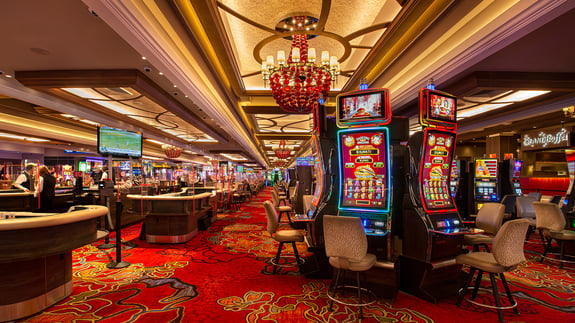
Gambling in casinos has long been a topic of fascination and debate, attracting millions of players around the world. With a mix of chance, skill, and the thrill of uncertainty, casino games offer an exciting escape from everyday life. However, as entertainment becomes ever more accessible, it invites a deeper examination of the ethical implications surrounding these games.
At the heart of the debate lies the question of whether casinos promote responsible gaming or take advantage of vulnerable individuals. The appeal of potential winnings versus the reality of losses can create a challenging dynamic, and understanding this balance is essential for both players and operators. As we delve into the morals of casino gaming, we will explore the duties of casinos, the impact on society, and the steps that can be taken to foster a healthier gaming environment. cpc2888
The Impact of Casino Gaming on Society
Casino gaming has a notable influence on society, affecting not only the financial landscape but also interpersonal dynamics and local frameworks. The funds generated from casinos can lead to employment opportunities and boost local economies, as they provide numerous employment opportunities in different sectors including hospitality, leisure activities, and retail. However, while the financial benefits can be significant, communities often struggle with the possible negative impacts that arise from higher gambling activity.
Moreover, the presence of casinos can lead to an increase in gambling addiction, presenting significant challenges for players and families. The excitement of casino games can quickly evolve into a compulsive habit, affecting connections with others and leading to financial instability. Many players may struggle with the loss of control over their gambling habits, resulting in a need for community support services and help to address this growing issue. The social cost of addiction can ripple through families and neighborhoods, creating an urgent need for sensible gambling approaches.
In addition to the economic and social ramifications, casino gaming often showcases cultural attitudes towards uncertainty and entertainment. It can foster a sense of joy and leisure, attracting visitors and boosting local travel. However, this allure may also conceal the wider implications of gambling as a form of entertainment, provoking ethical questions about its advertisement and availability. As communities weigh the benefits and drawbacks of casino gaming, the need for responsible practices and regulation becomes increasingly critical in ensuring that the beneficial elements are maximized while minimizing the potential harms.
Moral Issues in Gambling Practices
The morality of casino gaming often revolve around the potential for addiction and its consequences on individuals and households. Betting can lead to significant monetary distress, impacting not only the betters but also their families. As individuals become caught in the appeal of winning, many lose track of their financial limits, which can result in catastrophic outcomes such as bankruptcy. This poses ethical questions about the duty of casinos in promoting responsible gaming practices and offering support for those who may be dealing with gambling addiction.
Another major concern is the advertising of gambling to vulnerable groups. Casinos often aim at low-income people or neighborhoods with the promise of fast rewards, which can perpetuate patterns of poverty and despair. In this situation, the ethics of marketing strategies used by casinos come under scrutiny, as they may take advantage of the need of people seeking an way out from economic troubles. This exploitation raises ethical questions about the honesty of the betting industry and its obligation to protect its most vulnerable patrons.
Additionally, the effect of casino operations on society as a whole cannot be ignored. While some argue that gambling establishments create jobs and boost local economies, others point to the social costs associated with dysfunctional gambling, increased crime rates, and a burden on public services. Balancing economic benefits with the potential for community issues presents a challenging ethical dilemma for policymakers and gambling operators alike. The difficulty lies in discovering a ethical approach that prioritizes the welfare of people and society while still allowing for the enjoyment of casino gaming.
Regulatory System and Responsibilities
The legal system related to gambling operations is created to ensure justice, honesty, and player security. Multiple government bodies and gaming commissions establish and enforce regulations that dictate how casino games function, the standards for activity design, and the protocols for managing winnings. These regulations change by jurisdiction but typically involve licensing requirements for operators and stringent measures to prevent deception and scams.
In furthermore to oversight bodies, casino operators bear major duty in upholding ethical standards within their venues. They must enforce responsible gaming practices that support player protection and consciousness, including offering self-limitation options and offering information about the dangers connected to betting. Establishments are also obligated for instructing workers to identify signs of difficult gaming and understand the appropriate actions to support visitors in distress.
Moreover, clarity in gambling operations is vital for gaining and keeping public confidence. Casinos should provide clear information about the odds of games, promotional opportunities, and any connected hazards. By creating an atmosphere of honesty and responsibility, casinos can help mitigate the possible harmful impact of gambling while boosting the complete gaming experience for all players.
